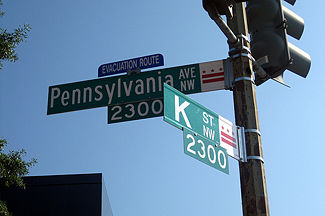CZ:Cornell University 2010 BEE 4640 Bioseparation Processes: Difference between revisions
imported>Daniel Mietchen (→What We'll Be Working On: adding a test article) |
imported>Russell D. Jones (alphabetizing category) |
||
| (7 intermediate revisions by 2 users not shown) | |||
| Line 9: | Line 9: | ||
'''Office Hours''': 3-5 pm Wednesdays at 218 Riley Robb, or by appointment | '''Office Hours''': 3-5 pm Wednesdays at 218 Riley Robb, or by appointment | ||
==Project Description== | ==Project Description== | ||
| Line 27: | Line 17: | ||
The following is a list of articles that BEE 4640 community will be working on during the Fall 2010 semester. These articles will be closed to editing by other citizens until after the conclusion of the course, though we would sincerely appreciate any citizen's contributions in the form of comments, suggestions or questions added to the articles' talk subpages. | The following is a list of articles that BEE 4640 community will be working on during the Fall 2010 semester. These articles will be closed to editing by other citizens until after the conclusion of the course, though we would sincerely appreciate any citizen's contributions in the form of comments, suggestions or questions added to the articles' talk subpages. | ||
New Articles | |||
{{r_EZ| | {{r_EZ|Filtration}} | ||
{{r_EZ| | {{r_EZ|Adsorption}} | ||
{{r_EZ| | {{r_EZ|Precipitation (chemistry)}} | ||
{{r_EZ| | {{r_EZ|Centrifuge}} | ||
{{r_EZ| | {{r_EZ|Crossflow membrane filtration}} | ||
{{r_EZ|Liquid extraction}} | |||
{{r_EZ|Electrophoresis}} | |||
Expansion of Existing Article | |||
{{r_EZ| | {{r_EZ|Chromatography}} | ||
[[Category:Eduzendium]] | [[Category:Eduzendium|BEE]] | ||
[[Category:Eduzendium:Cornell|BEE]] | |||
Latest revision as of 19:57, 7 December 2011
The course coordinates
Instructor: Jean B. Hunter
Institution: Cornell University
Email: jbh5 (at) cornell.edu
Office Hours: 3-5 pm Wednesdays at 218 Riley Robb, or by appointment
Project Description
This Eduzendium project is a term project in lieu of a term paper and class presentation. Students collaborate in groups of three to generate encyclopedia articles related to bioseparation, also called downstream processing. Each student has primary responsibility for one article and serves as a reviewer for two more articles. In addition to writing and reviewing, we are developing skills in critical reading of scientific literature and in preparation of images to enhance the articles.
What We'll Be Working On
The following is a list of articles that BEE 4640 community will be working on during the Fall 2010 semester. These articles will be closed to editing by other citizens until after the conclusion of the course, though we would sincerely appreciate any citizen's contributions in the form of comments, suggestions or questions added to the articles' talk subpages.
New Articles
 Filtration [r]: The separation of solid particles from a fluid in which they are suspended, by passing the fluid through a porous barrier which retains most or all of the particles. [e]
Filtration [r]: The separation of solid particles from a fluid in which they are suspended, by passing the fluid through a porous barrier which retains most or all of the particles. [e]
- Adsorption [r]: The attachment of molecules of gas, liquid, or dissolved solids to a surface, usually by weak non-covalent bonds. [e]
To create this article in course-specific format, please open this page in a separate window — it will guide you through the process. After each step that takes you away from this course homepage, check back here and reload the page. If you are ready to start this process, then
 Precipitation (chemistry) [r]: The conversion of a dissolved substance to solid particles in a solution, either by chemical reaction or by environmental manipulations e.g. cooling which render the substance insoluble. [e]
Precipitation (chemistry) [r]: The conversion of a dissolved substance to solid particles in a solution, either by chemical reaction or by environmental manipulations e.g. cooling which render the substance insoluble. [e]
 Centrifuge [r]: A device which separates particles or droplets suspended in a liquid based on their relative densities,using centrifugal force generated by spinning the sample rapidly around a fixed axis. [e]
Centrifuge [r]: A device which separates particles or droplets suspended in a liquid based on their relative densities,using centrifugal force generated by spinning the sample rapidly around a fixed axis. [e]
 Crossflow membrane filtration [r]: A filtration process in which the solid/liquid suspension to be filtered is made to flow rapidly across the surface of the porous filter material so that a portion of the fluid passes through the filter while the solid particles remain suspended in the remaining fluid. [e]
Crossflow membrane filtration [r]: A filtration process in which the solid/liquid suspension to be filtered is made to flow rapidly across the surface of the porous filter material so that a portion of the fluid passes through the filter while the solid particles remain suspended in the remaining fluid. [e]
 Liquid extraction [r]: A process for separating components of a solution by exploiting differences in their solubility in, or affinity for, a solvent immiscible with the initial solution. [e]
Liquid extraction [r]: A process for separating components of a solution by exploiting differences in their solubility in, or affinity for, a solvent immiscible with the initial solution. [e]
 Electrophoresis [r]: A separation process in which charged molecules or particles in aqueous solution are separated from each other according to their relative velocity in an electric field. [e]
Electrophoresis [r]: A separation process in which charged molecules or particles in aqueous solution are separated from each other according to their relative velocity in an electric field. [e]
Expansion of Existing Article
 Chromatography [r]: Chemical purification process that separates substances based on differing affinities for other substances. [e]
Chromatography [r]: Chemical purification process that separates substances based on differing affinities for other substances. [e]
